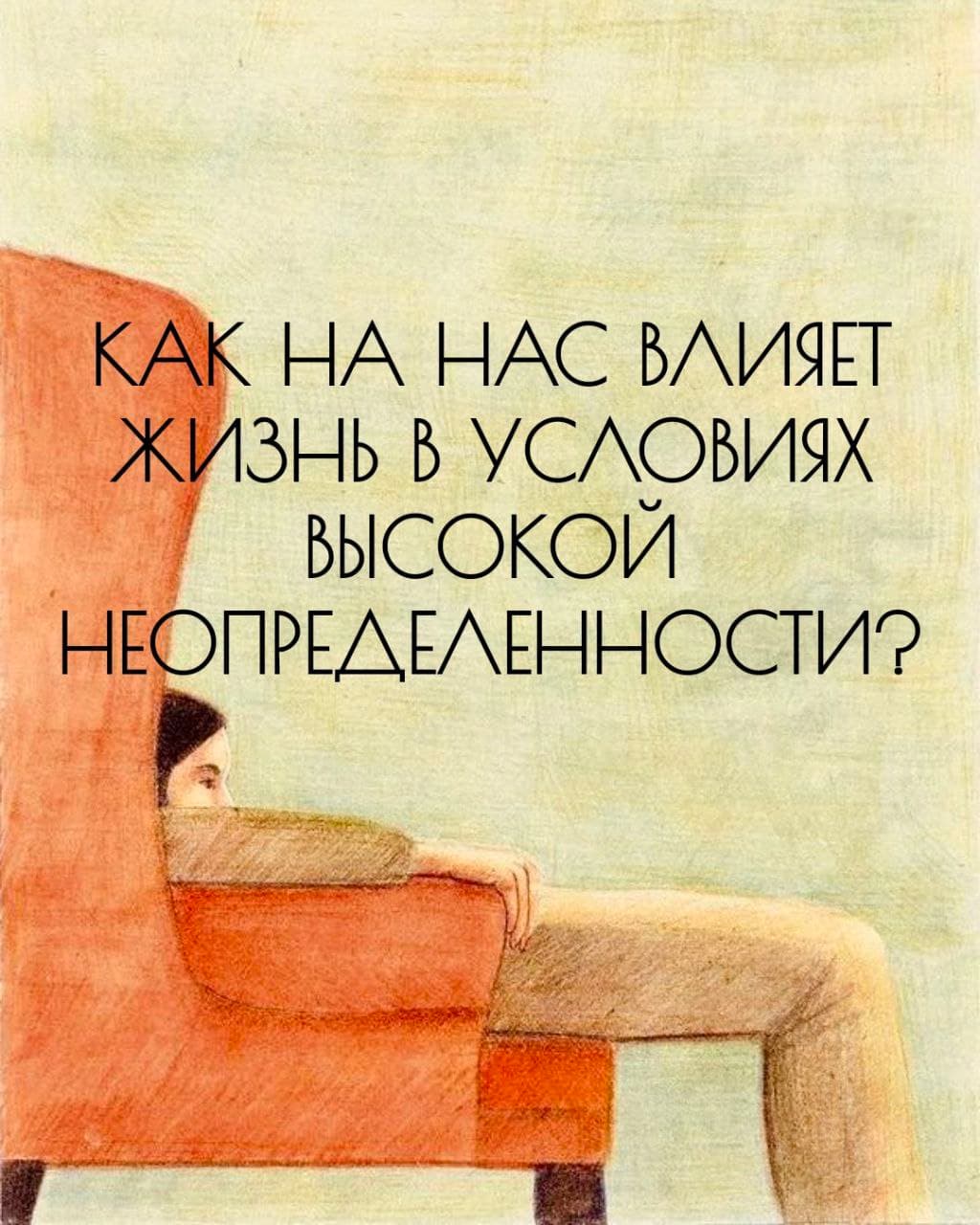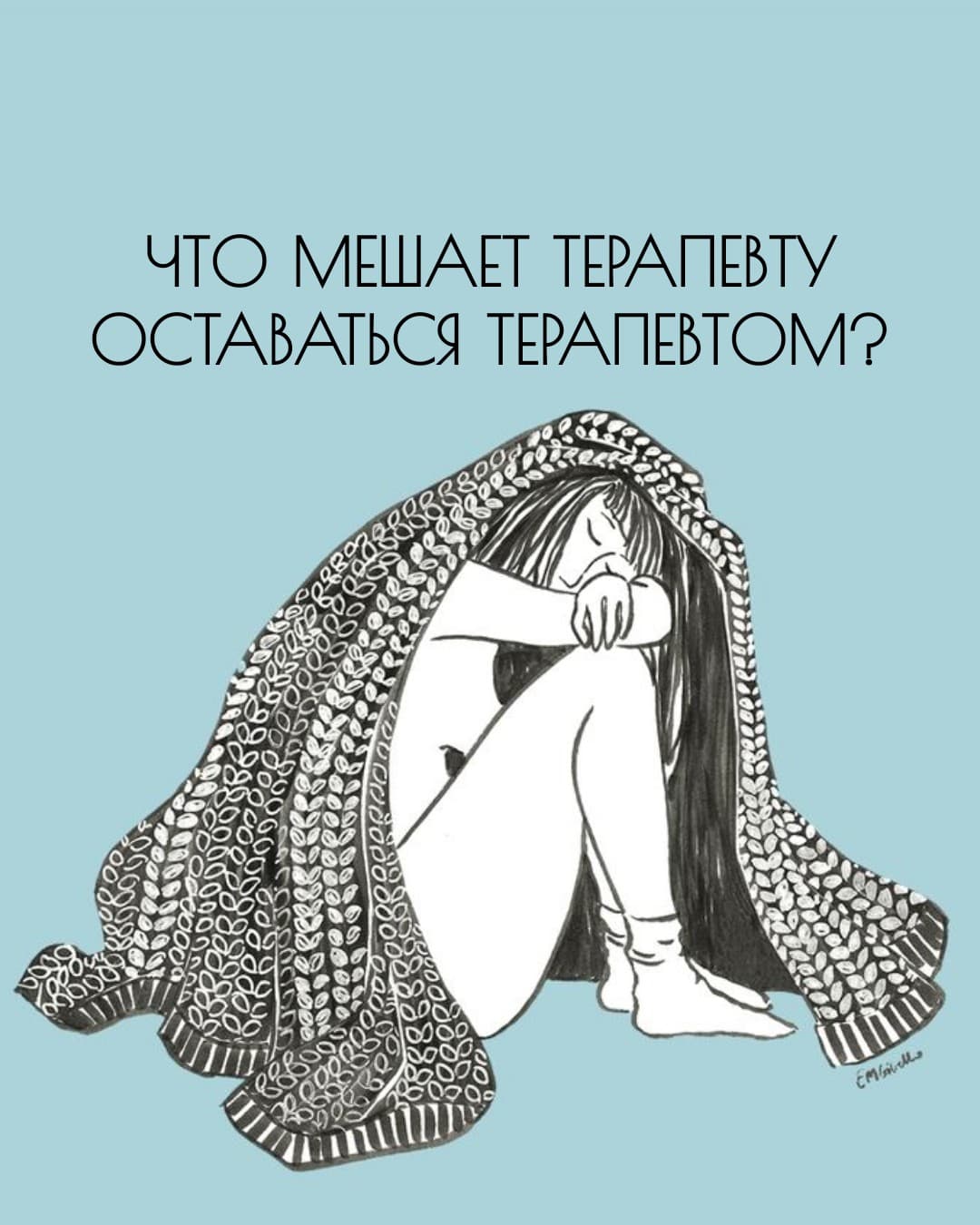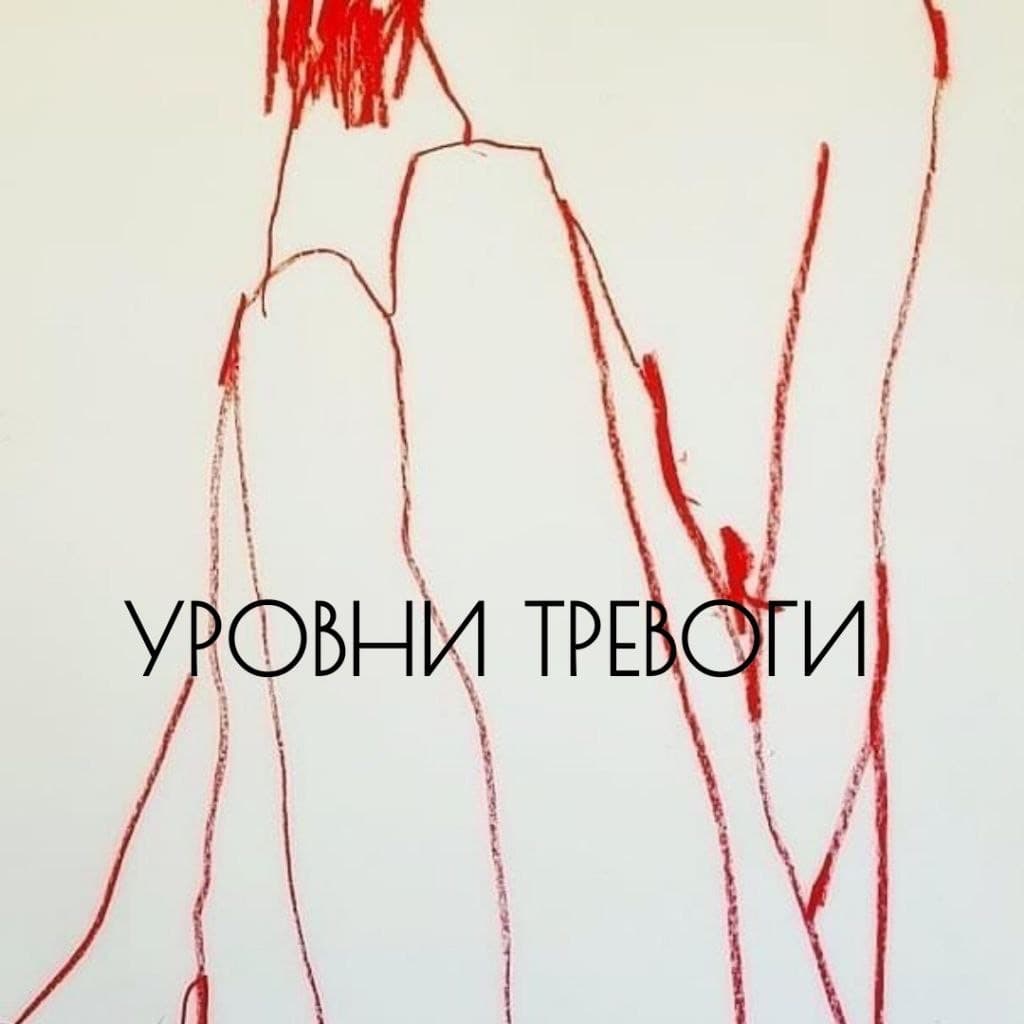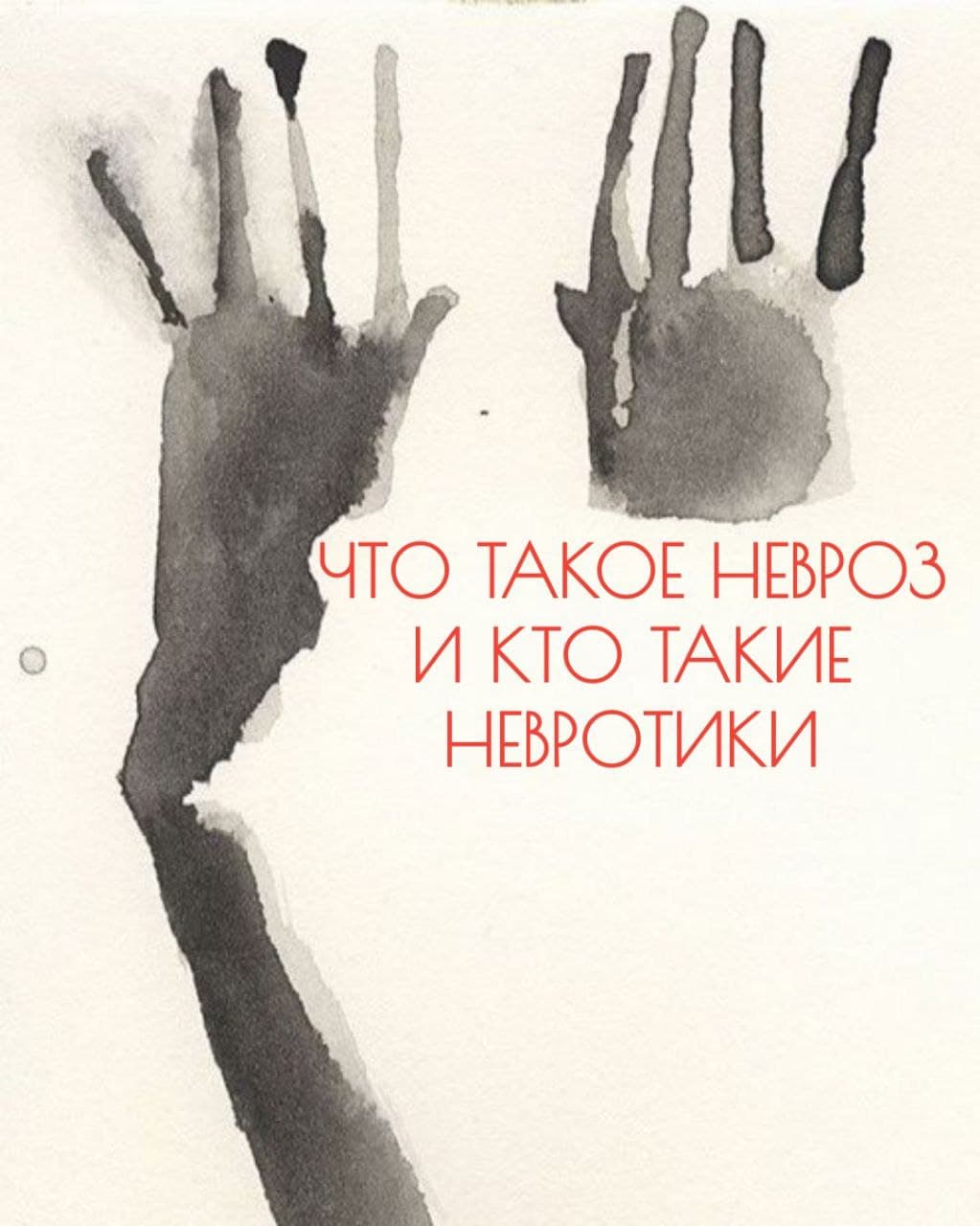
@omprograms
Uncertainty is almost inevitable and, in a way, even a familiar part of our lives. But when the level of uncertainty is high, it can affect a whole range of important aspects of our lives.

What is currently unfolding around the war between Russia and Ukraine is most akin to psychosis.
In this context, the concept described by the remarkable Italian psychotherapist Margherita Spagnuolo Lobb (2010, 2014) is particularly interesting, as she proposes viewing different periods of societal states from the perspective of psychotherapy.
She explains why, during certain periods, specific reactions, behaviors, and psychopathological states become most prevalent in society, affecting not only individuals but society as a whole.
Margherita (and subsequently other authors) describes the sequential movement of society starting from the 1950s, when most modern psychotherapeutic approaches emerged, up to the beginning of the current century. Society, having undergone traumatic experiences during World War II, becomes "neurotic" in the years 1945–50 (when, in response to trauma and the need to feel protected, the need for belonging comes to the forefront, and personal goals are sacrificed for the sake of preserving relationships). Then, from 1950–70, neurotic tendencies are replaced by narcissistic ones in an attempt to overcome the belonging that has turned from valuable and necessary into suffocating, in favor of autonomy and personal realization. In the years 1970–90, the foundation of society is formed by a new generation, raised by narcissistic parents preoccupied with personal achievements. This generation becomes "borderline" (filled with turbulent but not warlike relationships, unclear notions of personal identity, and a black-and-white worldview).
In terms of psychopathology, the movement from neurotic experience to borderline experience is a movement toward a more severe state. Следующим состоянием по уровню тяжести является психоз.
В истории достаточно часто можно проследить такие циклы, но до стадии психоза человечество доходило редко. Цикл, пройденный в Германии после первой мировой войны, закончившийся в конце 30-хх психотическим всплеском, надолго захватившим Европу, скорее является одним из исключений. Значительно чаще после проживания пограничного состояния происходило какое-то травматичное событие (война, экономическая катастрофа, тяжелая эпидемия) и начинался новый круг.
In the 1990s-2010s, following the border period, neither a large-scale war, nor an epidemic, nor a cardinal social collapse occurred. But a new form of psychological organization of society emerged. Specialists (the first of whom was Zygmunt Bauman) labeled it "Liquid society" ("fluid society"). The society in this period was characterized by some erased psychotic (rather autistic) features: difficulties to be in relationships, loneliness with the appearance of communication against the background of incredible development of computer technologies. Psychotic traits began to manifest themselves on the bodily level in the form of desensitization (loss of sensitivity) and changes in attitude to the body (in particular, the body began to turn on gadgets, many people had anxiety when leaving the house without a cell phone). The level of anxiety became much higher than before.
I remember in 2017, when I was interviewing people of different professions in Moscow, how surprised I was by the number of people who feared terrorist attacks and nuclear threats. Then came "COVID." On one hand, the epidemic made the manifestations of a fluid society even more apparent, almost legitimizing our isolation. On the other hand, the danger to life and the high number of deaths evoked many war-like allusions and was experienced as trauma, though not in the same way as in a real war.
Just two months ago, in attempts to conceptualize the social situation, I speculated that as a result of the pandemic, some new, previously undescribed form of societal organization would emerge, similar to the "Liquid society."
But something else happened. And now, right before our eyes, a psychotic scenario is unfolding.
The main signs of psychosis are a disruption of connection with reality, distorted thinking and perception of the world (ignoring facts and observations and creating an illusory picture that replaces the real one), emotional disturbances (such as impaired empathy, emotional coldness, and contradictory experiences), the presence of delusional symptoms (including grandiose ideas, magical conspiratorial concepts), and schism (splitting). Splitting consists of the simultaneous manifestation of incompatible forms of behavior, fragmented and disorganized thinking, emotional contradictions, loss of directed volitional processes, autism (disconnection between a person's inner world and the external world), and the replacement of one's own mental processes with automatisms (when there is a sensation that another person, entity, or grandiose idea is controlling the individual, suppressing their own personality).
Psychosis is accompanied by intense experiences (sudden feelings of world collapse, lack of a sense of boundaries, very high levels of anxiety, uncontrollable terror, a feeling of unreality, and loss of self-identity, aggression). Everyone who finds themselves affected by the psychotic field faces these feelings. Even being near someone who has developed psychosis is difficult; people become engulfed by strong anxiety and uncontrollable terror. When there is a lot of terror, the prerequisites for mass reactive responses arise, especially against the backdrop of the contradictory messages characteristic of psychosis.
The latter is very vividly evident today. The population of Russia and the entire world are truly witnessing endless contradictory messages, especially pronounced since the beginning of the war. We are told that we initiated a special operation in Donbas, yet troops are simultaneously being deployed to Ukraine, a thousand kilometers away from Donbas. They say war has been declared on us, but we are not at war and the word "war" cannot be uttered. They claim, "We are not fighting," yet people are arrested for slogans like "No to war." The idea is floated that "We are bombing another country to save the population of that country." They announce, "The Russian economy is completely protected," and immediately prohibit withdrawals from deposits and restrict food distribution in stores.
It's written, "President Putin supported the initiative to attract volunteers to Ukraine." And then, "Russian Foreign Minister Sergey Lavrov stated: 'We do not plan to attack other countries, we did not attack Ukraine either.'" In areas not directly related to the war, the messages are no clearer.
"The presence of a large number of rights restricts a person's freedom, while prohibitions in the legal system, on the contrary, imply freedom of choice," believes Elena Mizulina, Deputy Chairman of the Federation Council Committee on Constitutional Legislation and State Building. (RIA Novosti)
Equally contradictory messages are seen on the other side of the front. They tell us that the whole world stands with Ukraine, yet Ukraine receives only minor arms supplies. They say it's impossible to close the sky over Ukraine due to the threat of nuclear war, yet no one fears imposing an embargo – as if there's a magical rule that Russia cannot launch a nuclear strike in this case. Russia is threatened with devastating sanctions, yet the main sources of Russian wealth – oil and gas – remain untouched by sanctions, while much noise is made about stopping the supply of Louis Vuitton bags or halting shipments of jewels to Russia.
Being in an atmosphere of ambivalent messages undoubtedly fuels people's disorientation, reduces critical thinking, and sustains a psychotic field.
Especially susceptible to the psychotic field are people experiencing intense fear, feeling oppressed, and needing someone stronger and more authoritative. Joining the crowd is a powerful way to cope with a range of complex emotions. As a result, people lose their normal ability to judge and become caught up in mass-distributed ideas without subjecting them to critical analysis, which fuels psychotic tendencies.
Certainly, what is happening now also triggers traumatic and borderline experiences (which are always present in a wartime situation), but all of this is happening against a backdrop of psychosis.
Unfortunately, in terms of psychopathology, there are three main scenarios for further developments in the short term.
The first scenario involves the deepening and chronicization of psychosis (similar to what is described in Orwell's novel "1984"). Sooner or later, this scenario culminates in one of the following outcomes:
Implementation of annihilative aggression – the suicide of society. Self-destruction can take various forms. It could be the unleashing of a nuclear war that would end the existence of the world. Or a civil war that would lead to the self-destruction of Russia as a political and geographical entity. Of course, we hope that such a scenario never unfolds.
Prolonged depression following a psychotic episode. The depressive scenario is associated with freezing or collapse of different spheres of life, including the economy, disruption of human connections, deepening of autization (predominance of inner life, and sharp limitation of contacts with the outside world), sharp decrease in activity and vitality, and fall in self-esteem. There is a danger of directing aggression inside society, experiencing powerlessness, inability to respond to challenges.
What can we do to get through this?
Firstly, it's important to remember that nightmares are not eternal. Even the most terrifying periods in history eventually give way to something else. From a human perspective, many patients who have experienced a psychotic episode, even a prolonged and severe one, gradually emerge from the painful state, regain functionality, and return to a relatively normal life.
Secondly, it's crucial to maintain personal awareness and connection with reality. When dealing with a psychotic state, having critical awareness is a significant factor that improves prognosis. Reality is maintained, in part, by confronting our own complex emotions. Ignoring feelings doesn't make them disappear; instead, it deprives us of the ability to manage them (to find ways to express them, choose when to present them, and when not to). Understanding our feelings is crucial. In the psychotic field, differentiating feelings can be challenging. Sometimes, special effort is needed to understand what is happening to us, what these feelings of excitement, anxiety, trembling, and insomnia are about. Currently, the most common experiences are:
a) Horror (it's terrifying when people are dying, when the lives of friends and relatives in Ukraine are in danger; it's frightening when people inside Russia trying to express their opinions are subjected to arrests and beatings, it's frightening to witness the collapse of life),
b) Shame (it's shameful to be associated with the aggressor, with someone you know, whose behavior seems unacceptable, it's shameful when the country you are connected to is condemned by everyone in the world),
c) Guilt (even if there is no sense of direct responsibility, there may be a feeling of guilt that I am better off right now than those being bombed, and there's nothing I can do about it),
d) Powerlessness (in reality, it's obvious that right now, no direct actions or protests lead to the desired result, sometimes you can't even change the position of friends or relatives, let alone the authorities),
e) Anger (different types of anger towards Putin, the government, the Security Council, inactive or aggressive Europe, NATO, sanctions, compatriots, relatives, the universe, etc.),
g) Sense of loss (when your home is destroyed or occupied by strangers, it's a very difficult experience, when connections with loved ones are severed, when there's a feeling that you can't return to the country you considered home).
All these are feelings we don't want to encounter. However, avoiding feelings leads to the emergence and deepening of depression.
Ось переклад з тегами:
Therefore, the right strategy would be to be aware and feel. It's important to do this not alone (friends, support groups, like-minded individuals), finding supports and ways to process feelings, while being aware of our own zones of responsibility, distinguishing what we can change and what we cannot. This helps to avoid falling into helplessness, find ways to cope with emotions, and act optimally for the situation. Fear, by the way, should not be ignored either. Awareness of fear allows us to choose safer strategies for ourselves.
Thirdly, it's very important to maintain vitality and, overall, everything related to life forces. This is challenging amidst depressive experiences but necessary. Taking care of oneself, sleeping, eating, finding things that bring joy is important. As it is known, even in the most difficult situations, during wars, in camps, prisons, occupations, those who survived were those who brushed their teeth, shaved, exercised, allowed themselves to fall in love, and had hobbies.
Fourthly, it's important to maintain subjectivity (the ability to have one's own opinion and act actively, independently of others). In situations where you do not choose what happens, do not agree with it, and cannot change it immediately, it's easy to feel powerless and start perceiving oneself as an object. To prevent this, it's necessary to find one's own meanings, find things that you believe are worth doing even in such challenging conditions.
A wonderful woman once told me that in such times, good forces are divided into warriors and keepers (the latter like Kropivnitsky, or Frankl, or Schindler). These are the ones who are primarily able to resist the psychotic field, not be captured by it. It can be difficult for them. Like the degenerates from "The Inhabited Island". Everyone is talking about this book now. And for good reason. Perhaps it's time to reread it before it gets banned. Although even if the book is banned, there will always be keepers, as it has always been throughout history.

Fill out the form below, we will answer your question shortly!

Uncertainty is almost inevitable and, in a way, even a familiar part of our lives. But when the level of uncertainty is high, it can affect a whole range of important aspects of our lives.

WHAT PREVENTS A THERAPIST FROM BEING A THERAPIST?

Alarm levels. What is anxiety and how to deal with anxiety?

What is neurosis, and who are neurotics?